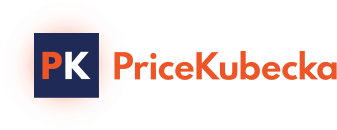The 401(k) audit is required by law for any business that has over 100 eligible employees. The federal government did not postpone the filing deadline as part of its COVID relief efforts, and so, this is one requirement that you cannot skirt.
Reducing expenses has always been a goal even before the pandemic, but it’s even more imperative to take a fresh look at your finances and explore better solutions to meet your bottom line.
Reducing the cost of your 401(k) audit is one way to shave thousands of dollars off your annual budget.

Here’s How:
Choose a 401(k) Specialist, Not a Generalist
You may be tempted to tap your current CPA firm to perform the audit but if they don’t specialize in 401(k) plans, find another firm. Specialize means that they perform at least 60 401(k) audits per year, preferably more. This provides them with the depth and experience needed to identify, raise, and counter any red flags that will penalize you once you file the audit with Form 5500.
Just like with taxes, your 401(k) auditor must stay abreast of ERISA compliance laws. Inexperienced CPAs may miss critical steps that leave you vulnerable and result in unwanted attention from the IRS and Department of Labor. Non-compliance and late filing can incur thousands of dollars in penalties per day and result in legal action. You just can’t afford to have your 401(k) audit performed by an auditing generalist.
However, this doesn’t mean you have to abandon your trusted relationship with your CPA firm. On the contrary. It simply means that it’s in your best interest to find a new partner that has this specific area of expertise. For example, just because you are in charge of workplace safety training, doesn’t mean you should write and teach the curriculum yourself. You hire a consultant or firm for that job to be done. Besides, auditors are used to working with other CPAs and directly with your record keeper to get the data they need to file the audit, so you’re not asking for something special.
Analyze the True Cost of a 401(k) Audit
What’s your CPA’s hourly rate? Multiply that by 80 hours plus travel and expenses and you’ll get a rough estimate of what your annual audit will cost each year. But don’t forget the cost of the human resources you’ll have to dedicate to the task to support the audit. With traditional audits, a team of CPAs spends up to one week with your employees sorting through the data. Add that all up and it equals way too much for any business to bear.
Here’s a formula based on industry averages followed by the breakdown of the formula with examples:
Cost of Auditing Services
+ Plan Sponsor Time to Support an Audit
= True Cost of Annual 401(k) Audit
Cost of Auditing Services
The average time to complete an audit is 80 hours. Most audits are performed by at least two auditors.
(CPA Hourly Rate x Time to Complete Audit) + Expenses = Cost of Auditing Services
Example:
$150/hour x 80 hours = $12,000
This only gets worse if they must be reimbursed for expenses.
Plan Sponsor Time to Support an Audit:
The time required by the plan sponsor to support the audit is typically 20 hours and often at least two HR representatives[3] dedicate time to the audit. Assuming the average person works 40 hours per week and gets paid for 52 weeks of the year, one salaried employee works 2,080 hours per year.
(Annual HR salary / 2,080 hours) = Hourly Rate
Example:
HR Director: $115,000 / 2,080 = $55 per hour
Benefits Admin: $63,000 / 2,080 = $30 per hour
(Hourly rate x 20 hours) x # of Employees
($55 per hour x 10 hours) + ($30 per hour x 10 hours) = $850
True Cost of a 401(k) Audit:
Cost of Auditing Services
+ Plan Sponsor Time to Support an Audit
= True Cost of Annual 401(k) Audit
$12,000
+ $ 850
$12,850
Then add any reimbursable expenses.
Another calculation to add to your formula is the cost of NOT doing business meaning what could your employees be doing to drive revenue or decrease costs instead of spending valuable time answering auditor questions.
It adds up, right?
The examples above are just averages and could trend higher based on a variety of factors, including the state where your business is located. Fortunately, some firms that specialize in 401(k) audits charge a flat fee, which ranges from $11,000-$15,000 plus travel expenses. If they perform remote audits, then travel won’t inflate your bill, but one factor you can’t take away is employee time. CPAs that perform hundreds of audits each year have a low learning curve, faster turnaround, and less of a tendency to make costly mistakes.
However, the time and experience needed to perform the complex calculations of an audit are still subject to human error. As mentioned, late filing fees and inaccuracies could result in thousands of dollars in penalties by BOTH the IRS (up to $15,000), and the DOL ($1,100 per day with no maximum).
Firms that complement their audits with auditing technology that automates data collection and analysis tend to be the most accurate and cost-effective solution. CPAs don’t need to rely on interns to perform those functions or spend precious time on mundane tasks but rather focus on the complex business of ensuring your audit meets federal requirements and is filed on time.
The deadline for the 401(k) audit is October 15, 2020. Here are five reasons why your HR department should get started on the audit now.
